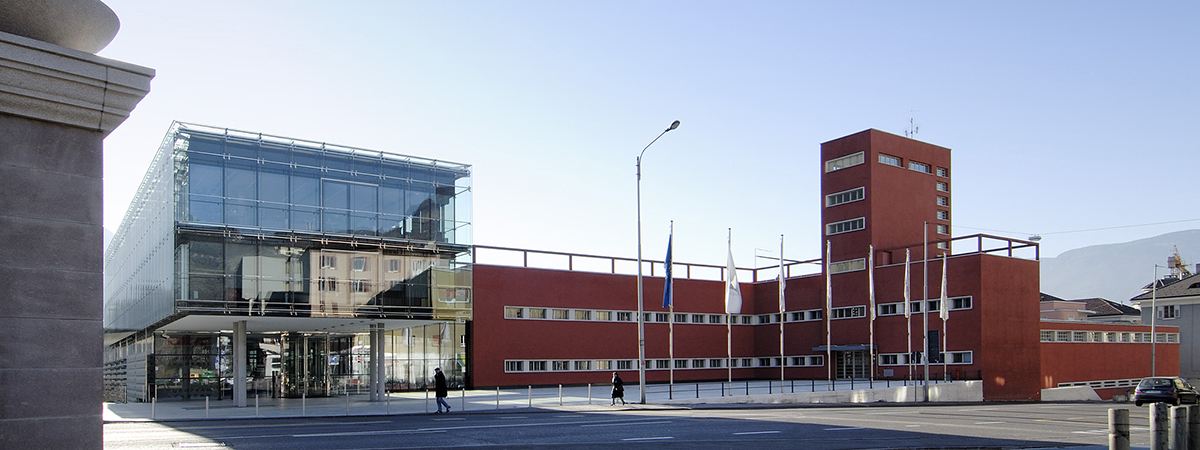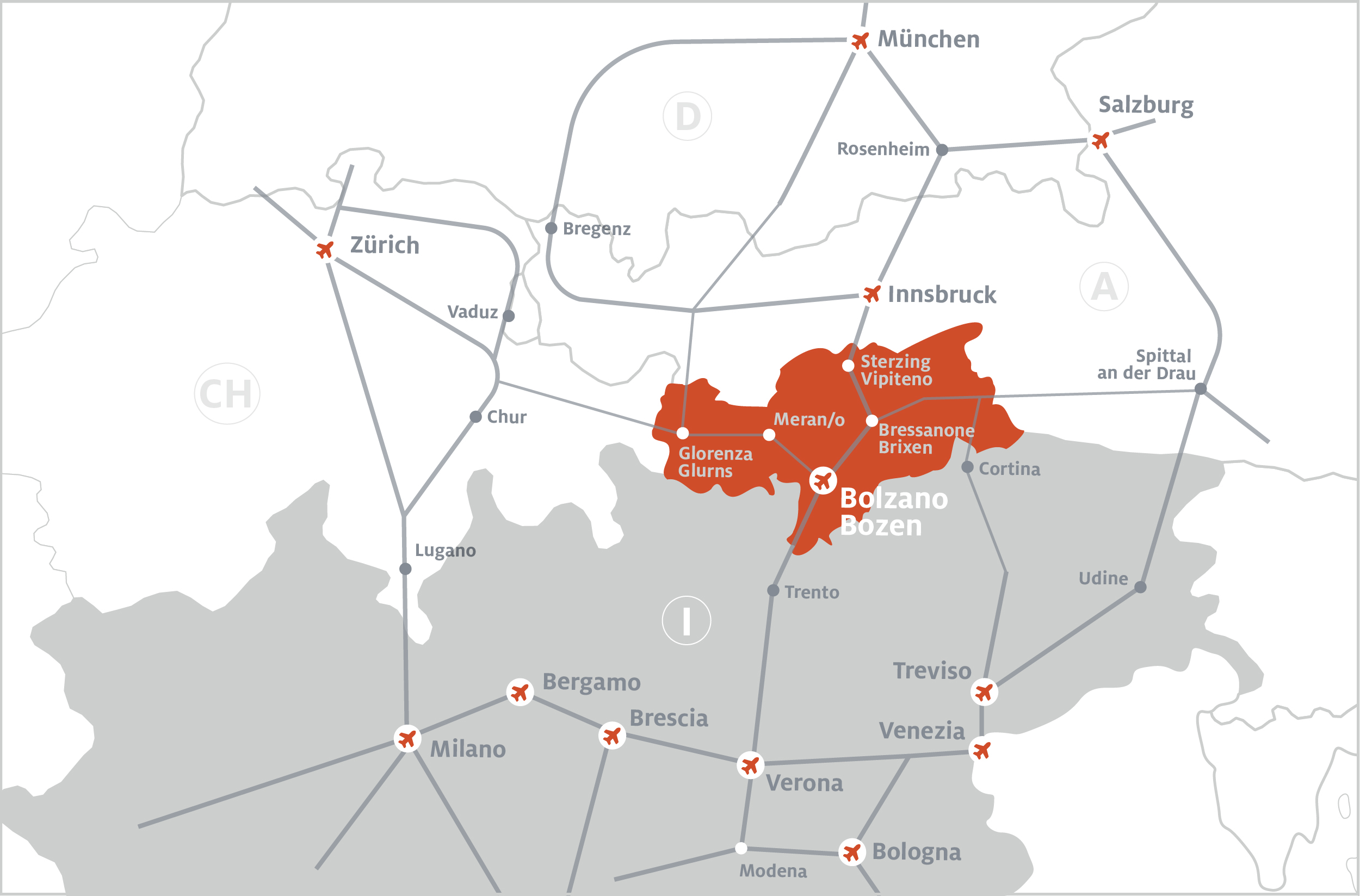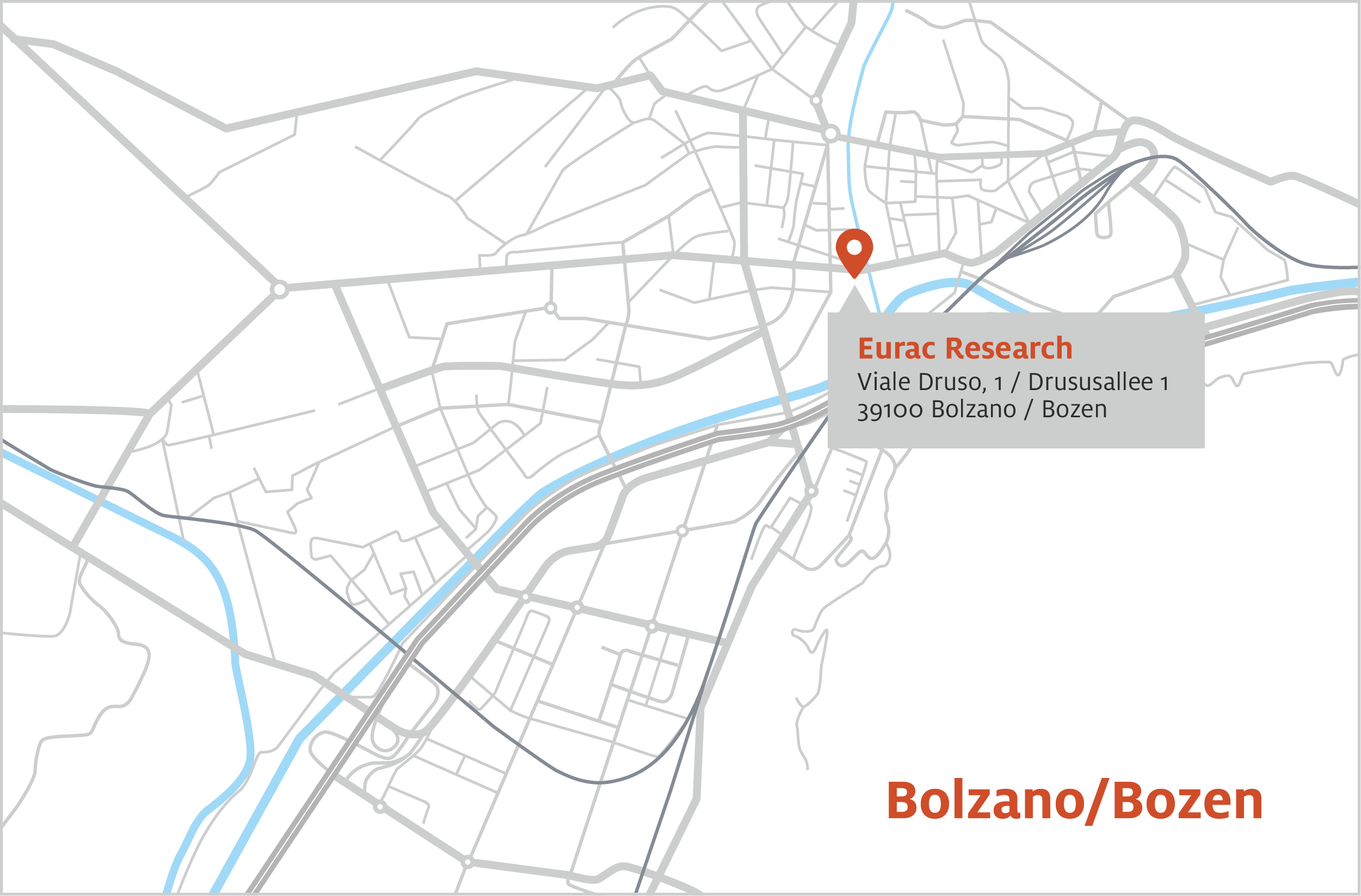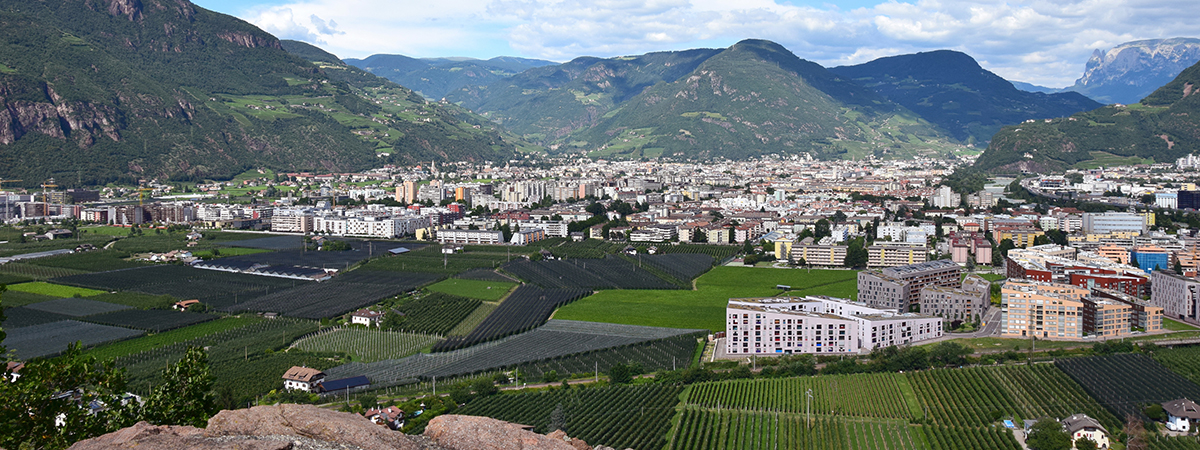Eurac Research
Eurac Research is a private research centre, founded in Bolzan in 1992. The centre’s initial focus began with areas of language and law, minorities and autonomies, and the Alpine environment. However, over time the centre has extended its research into other disciplines, attracting researchers from all over the world and over time expanding to open up new facilities.
The goal of Eurac Research is to improve life for future generations. In response to regional problems, the centre develops concrete solutions that can be applied globally and explores new avenues of scientific research that have a helpful impact on today’s society. Eurac Research is part of several international research networks with partnerships in more than 50 countries. The centre collaborates with the Alpine Convention, the Carpathian Convention, the United Nations Environment Programme (UNEP), and the United Nations Industrial Development Organisation (UNIDO), as well as with several space agencies.
Today, almost 400 researchers from 25 countries work at Eurac Research. This is how we contribute to issues that have a significant impact on people’s lives and health and the environment upon which they depend.
Information on Facilities & Structure
- 1 auditorium seating up to 320
- 1 conference room seating up to 100
- 5 seminar rooms, each seating up to 30
- 1 representative room seating up to 40
- 2 smaller meeting rooms with 20 seats each
- 2 foyers
- 1 terrace for events (200 mq)
- 1 panoramic terrace on the tower
- 1 large internal garden (1060 mq)
- 1 library with lecture rooms and studio
- 1 bar-cafeteria with catering options
- Open Wi-Fi for all guests throughout the whole building
- There is a specific Meeting Management Department event team , in charge of coordinating the registration, ticketing, logistics, technical and catering sector, as well as for managing overall booking services. The department will give organisational support during the Congress and is also a, certified Green Event organiser.




